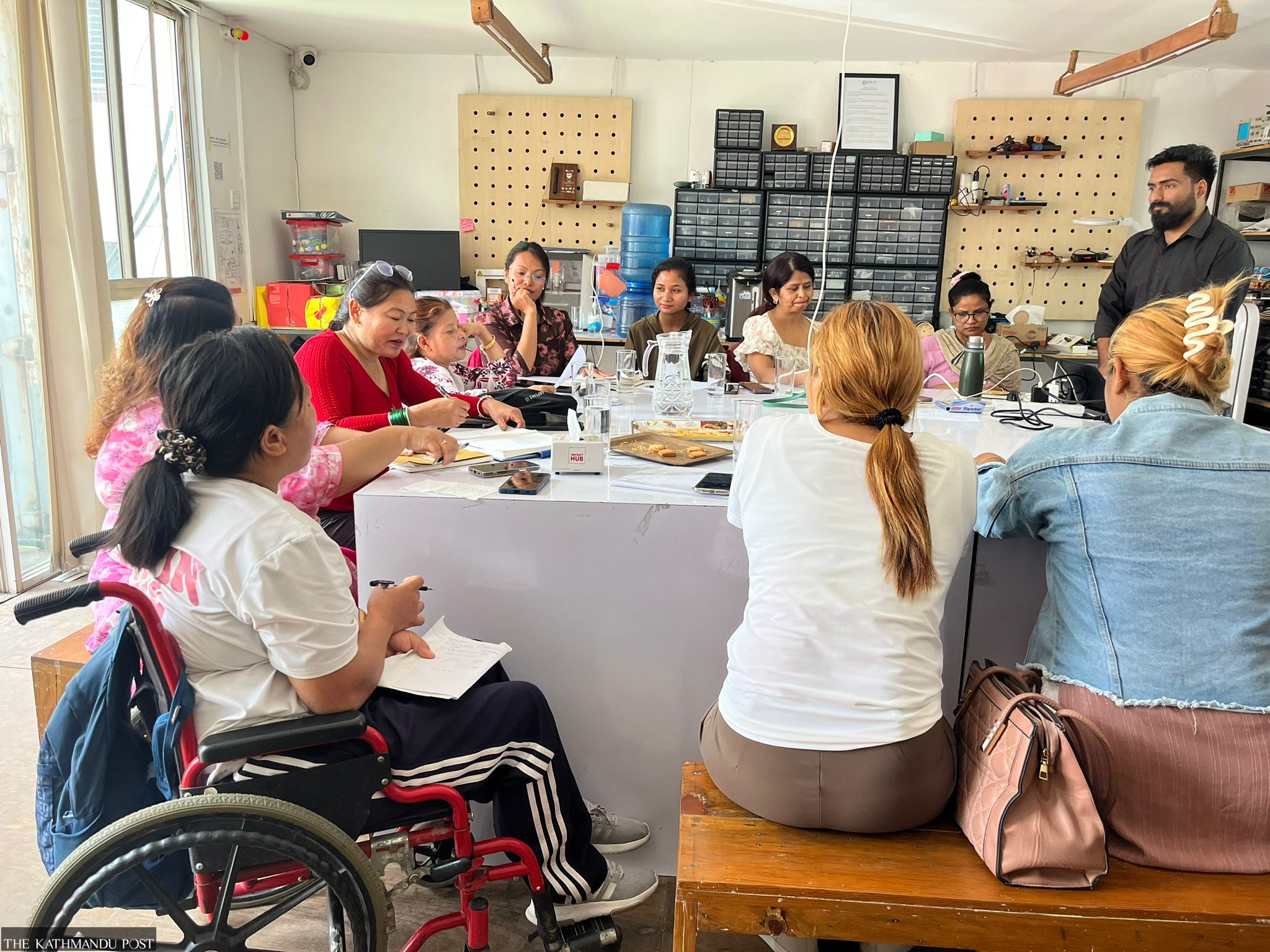Kathmandu, July 22 — Rupa Aryal has consistently faced challenges in securing employment due to her mobility impairment. When she was just two years old, a spinal injection administered by a physician resulted in damage to her leg. As a result, she now relies on crutches and a leg brace for movement.
Following multiple instances of being judged by employers who doubted her ability to work, Aryal chose to take control of her situation four years back.
“I decided it’s time to stop searching for a job and instead give myself one,” she said. Thus, she launched her own pickle-making business with the assistance of her mother; Aryal called the company ‘Aamaa Chhori Achar.’
It is undeniable that individuals with disabilities have consistently encountered difficulties in securing suitable employment,” she stated. “Having a physical disability is not something I chose, but I view it as a strength.
Aryal is now part of a program that includes 10 other female entrepreneurs with disabilities, aimed at developing her business abilities and expanding her company.
The Building Entrepreneurial Access Models (BEAM) initiative is managed by Impact Hub Kathmandu, a non-profit organization that promotes business ventures with a focus on social impact. Suchitra Adhikary, the Programme Assistant for BEAM, mentions that the program provides a vital chance for individuals with disabilities to engage in entrepreneurship.
In the context of Nepal, individuals with resources are provided with more opportunities, and entrepreneurship is largely restricted to them,” she stated. “When discussing business, we must not overlook people with disabilities.
Impact Hub Kathmandu initially concentrated on promoting entrepreneurship among disabled women by carrying out research for the Economic and Social Commission for Asia and the Pacific.
When conducting research, we discovered that limited access to financial resources is a significant obstacle for women entrepreneurs,” said Rashi Maharjan, a Programmes and Research Officer at Impact Hub Kathmandu. “We understood that they require assistance in running their businesses.
A key goal of the Impact Hub Kathmandu is to assist entrepreneurial ventures that create beneficial social and ecological effects. They frequently back companies dedicated to addressing climate change, encouraging eco-friendly practices, and advancing diversity.
Maharjan emphasizes that fostering inclusion should be a key focus in both the private and public sectors across Nepal. “When you examine the major political parties, we don’t even witness the presence of women, let alone someone with a disability,” Maharjan stated. “Therefore, I believe we are already lagging in addressing such issues.”
In December, Impact Hub Kathmandu issued a call for applications from women with disabilities who are entrepreneurs to join the BEAM program. The initiative started in February with the first in a series of ‘masterclasses’ designed to provide the 11 participants with essential skills to grow their businesses, including digital marketing, financial management, and strategic planning.
On Thursday, Impact Hub Kathmandu organized its fifth masterclass, centered on imparting financial and accounting knowledge, including methods for determining revenue and profit. Drawing inspiration from the first season of Shark Tank Nepal, which debuted on July 2, each entrepreneur presented their own simulated pitch. “Everyone is very keen to learn,” Adhikary remarked about the participants. “Even with their disabilities, they show a great deal of self-motivation.”
Many entrepreneurs received their initial guidance on maintaining financial records through this workshop. Aryal mentioned that she would have appreciated these skills when she launched her achar business.
At the conclusion of the six-month program, every entrepreneur will be awarded a grant to aid in the development of their business according to their specific requirements. Using the grant, Aryal aims to enhance the packaging of her achar in the near future and, in the long run, intends to create more job opportunities for individuals with disabilities.
“My aim is to establish a distinct company and generate employment opportunities for individuals like me—those with disabilities—as well as others in need,” she stated.
Rita Singh, an entrepreneur who has a mobility disability, also aims to utilize the grant to enhance accessibility in Nepal for individuals with disabilities. She has recently taken over Nawabi Biryani in New Baneshwar, but she is disappointed that the restaurant is situated on a staircase and is not suitable for wheelchair users. “If I secure investors, I plan to open a restaurant in an accessible location so that everyone can enjoy the food,” she mentioned.
Impact Hub Kathmandu intends to organize the graduation event for the entrepreneurs’ BEAM program in November, as the participants have acquired the necessary skills to expand their businesses.
Their narratives are genuinely motivating,” Adhikary remarked. “At Impact Hub, we aren’t merely discussing diversity, we are bringing it to life.






